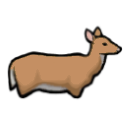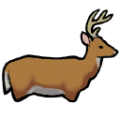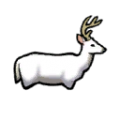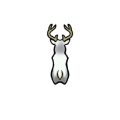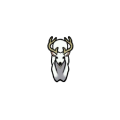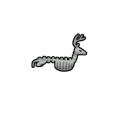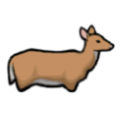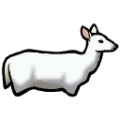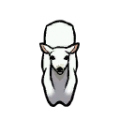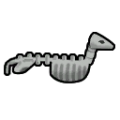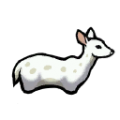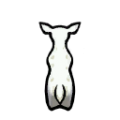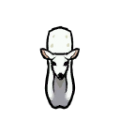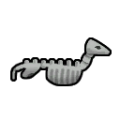Difference between revisions of "Deer"
| Line 65: | Line 65: | ||
== Summary == | == Summary == | ||
{{Pen Animal Note|Deer}} | {{Pen Animal Note|Deer}} | ||
| + | |||
| + | == Analysis == | ||
| + | Other than being an animal to be hunted, deer don't have much of a purpose. | ||
| + | |||
| + | [[Ibex]] are more efficient ranch animals, and they can be found in all biomes that deer populate. Deer ''are'' better to hunt than ibex, as deer are larger targets which won't revenge when hunted. | ||
| + | |||
| + | ===Nutrition=== | ||
| + | When slaughtered, a deer yields {{#vardefineecho:baby_meat|{{Meat Leather Curve|{{#expr:{{P|Body Size}}*0.2*140}}}}}} meat and {{Meat Leather Curve|{{#expr:{{P|Body Size}}*0.2*40}}}} leather as a baby; {{Meat Leather Curve|{{#expr:{{P|Body Size}}*0.5*140}}}} meat and {{Meat Leather Curve|{{#expr:{{P|Body Size}}*0.5*40}}}} as a juvenile; or {{Meat Leather Curve|{{#expr:{{P|Body Size}}*140}}}} meat and {{Meat Leather Curve|{{#expr:{{P|Body Size}}*40}}}} leather as an adult. 1 meat is equal to 0.05 nutrition. | ||
| + | |||
| + | An adult deer consumes {{P|Real Hunger Rate}} nutrition per day, and a doe creates up to {{#expr: 1/{{P|Gestation Period Days}} round 2}} offspring per day. | ||
| + | * When offspring are slaughtered as babies, a doe will produce {{#expr:{{Meat Production|{{PAGENAME}}|baby}} round 2}} nutrition of meat per day, giving an optimal nutrition efficiency of {{%|{{Meat Production|{{PAGENAME}}|baby}}/{{P|Real Hunger Rate}} round 3}}. | ||
| + | * If the offspring are allowed to grow to adulthood, they will consume an additional {{#expr:{{Nutrition Consumption|{{PAGENAME}}|adult}} - {{P|Real Hunger Rate}} round 2}} nutrition per day, but will instead yield {{#expr:{{Meat Production|{{PAGENAME}}|adult}} round 2}} nutrition per day as they are slaughtered, resulting in an optimal nutrition efficiency of {{%|{{Meat Production|{{PAGENAME}}|adult}}/{{Nutrition Consumption|{{PAGENAME}}|adult}} round 3}}. | ||
| + | When considering a population of equal numbers of males and females, these nutrition efficiencies fall to {{%|{{Meat Production|{{PAGENAME}}|baby|1|1}}/{{Nutrition Consumption|{{PAGENAME}}|baby|1|1}} round 3}} for baby slaughter and {{%|{{Meat Production|{{PAGENAME}}|adult|1|1}}/{{Nutrition Consumption|{{PAGENAME}}|adult|1|1}} round 3}} for adult slaughter. | ||
| + | |||
| + | As mentioned above, [[ibex]], as well as [[horse]]s, are superior for nutrition. Horses are also [[pack animal]]s which can also be ridden on [[caravan]]s. | ||
==Training== | ==Training== | ||
Revision as of 06:06, 1 March 2023
Deer
A medium-sized herding herbivore which prefers to live in mixed forests and plains. Deer are very quick.
Base Stats
- Type
- Animal
- Flammability
- 70%
Pawn Stats
- Move Speed
- 5.5 c/s
- Health Scale
- 90% HP
- Body Size
- 1.2
- Mass - Baby
- 14.4 kg
- Mass - Juvenile
- 36 kg
- Mass - Adult
- 72 kg
- Carrying Capacity
- 90 kg
- Filth Rate
- 16
- Hunger Rate
- 0.32 Nutrition/Day
- Diet
- herbivorous
- Life Expectancy
- 15 years
- Manhunter Chance
- 0%
- Manhunter Chance (Taming)
- 0%
- Trainable Intelligence
- None
- Wildness
- 75%
- Minimum Handling Skill
- 7
- Roam Interval
- 2 days
- Mate Interval
- 12 hours
- Maturity Age
- 0.333 years (20 days)
- Juvenile Age
- 0.1 years (6 days)
- Comfortable Temp Range
- -30 °C – 40 °C (-22 °F – 104 °F)
Production
- Meat Yield
- 168
 venison
venison - Leather Yield
- 48
 plainleather
plainleather - Gestation Period
- 5.661 days
- Offspring Per Birth
- 1
Melee Combat
- Attack 1
- Front left leg
7 dmg (Blunt)
10 % AP
2 second cooldown - Attack 2
- Front left leg
7 dmg (Poke)
10 % AP
2 second cooldown - Attack 3
- Front right leg
7 dmg (Blunt)
10 % AP
2 second cooldown - Attack 4
- Front right leg
7 dmg (Poke)
10 % AP
2 second cooldown - Attack 5
- Teeth
8 dmg (Bite)
12 % AP
2 second cooldown
0.5 chance factor - Attack 6
- Head
5 dmg (Blunt)
7 % AP
2 second cooldown
0.2 chance factor - Average DPS
- 2.12
- tradeTags
- AnimalCommon
Deer are herding herbivorous animals that are found in temperate forests, temperate swamps, boreal forests, and cold bogs. Males of the species are called Bucks and can be distinguished by the presense of antlers and larger visual size, while females are called Does and are visually smaller and lack antlers. Young deer of both genders are light colored and spotted. Despite the visual differences, adult deer of both genders have the same stats and attacks.
Summary
Deer are pen animals. Once tamed, pen animals cannot and do not need to be trained any further. But if left outside of a pen or caravan hitching spot, pen animals will eventually roam outside your colony. Making a caravan is not required to tie animals to a caravan hitching spot.
Analysis
Other than being an animal to be hunted, deer don't have much of a purpose.
Ibex are more efficient ranch animals, and they can be found in all biomes that deer populate. Deer are better to hunt than ibex, as deer are larger targets which won't revenge when hunted.
Nutrition
When slaughtered, a deer yields 35 meat and 17 leather as a baby; 84 meat and 28 as a juvenile; or 168 meat and 48 leather as an adult. 1 meat is equal to 0.05 nutrition.
An adult deer consumes 0.32 nutrition per day, and a doe creates up to 0.18 offspring per day.
- When offspring are slaughtered as babies, a doe will produce 0.31 nutrition of meat per day, giving an optimal nutrition efficiency of 96.6%.
- If the offspring are allowed to grow to adulthood, they will consume an additional 0.73 nutrition per day, but will instead yield 1.48 nutrition per day as they are slaughtered, resulting in an optimal nutrition efficiency of 141.4%.
When considering a population of equal numbers of males and females, these nutrition efficiencies fall to 48.3% for baby slaughter and 108.4% for adult slaughter.
As mentioned above, ibex, as well as horses, are superior for nutrition. Horses are also pack animals which can also be ridden on caravans.
Training
This animal can be trained as follows:
| Guard: | |
|---|---|
| Attack: | |
| Rescue: | |
| Haul: | |
*As of version 1.1.2610, all animals can be tamed. The percentage of likelihood of success depends on factors such as the Animals Wildness Percentage, Pawn Handling Skill, and others. More information can be found on the animals page.
